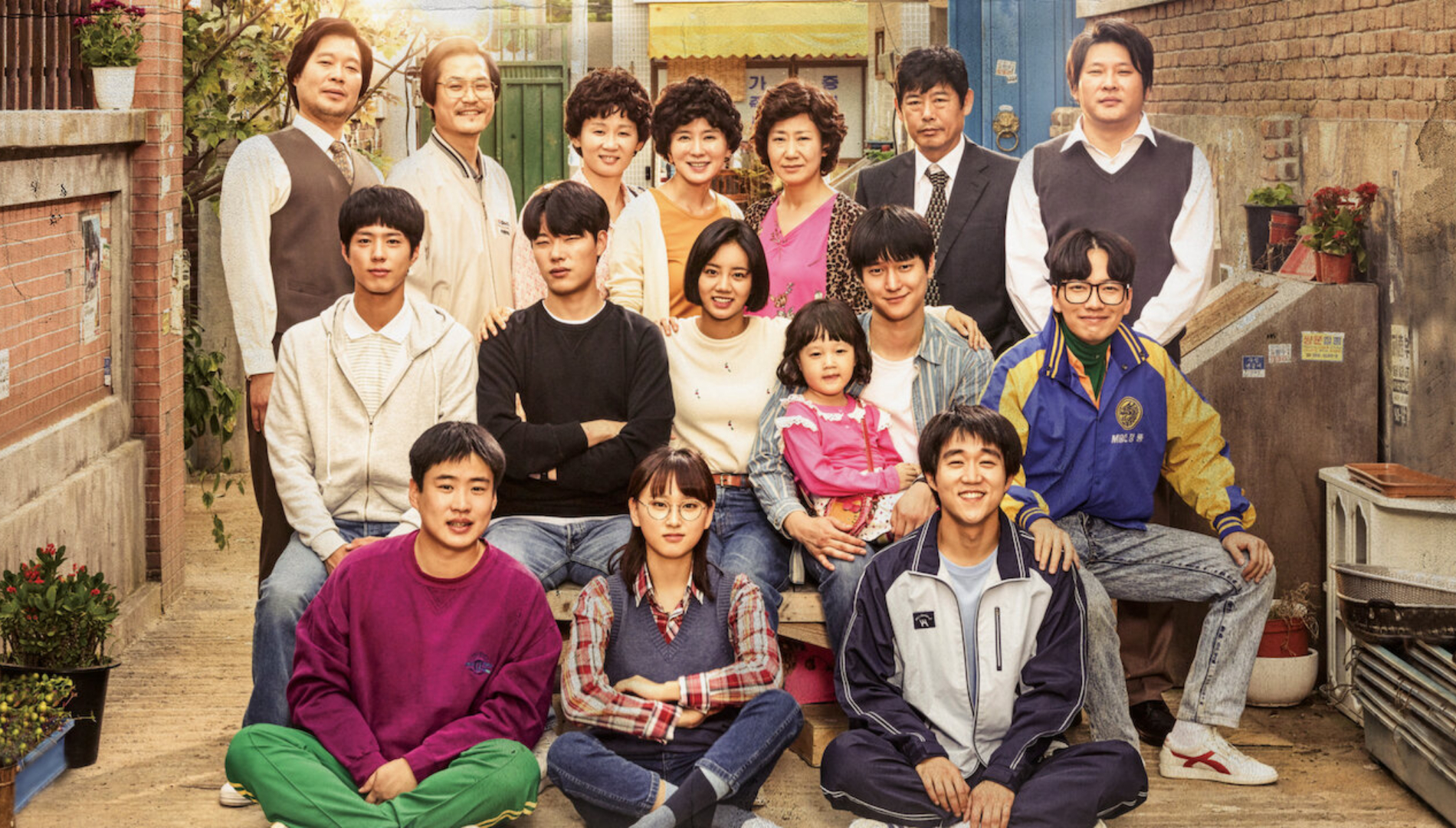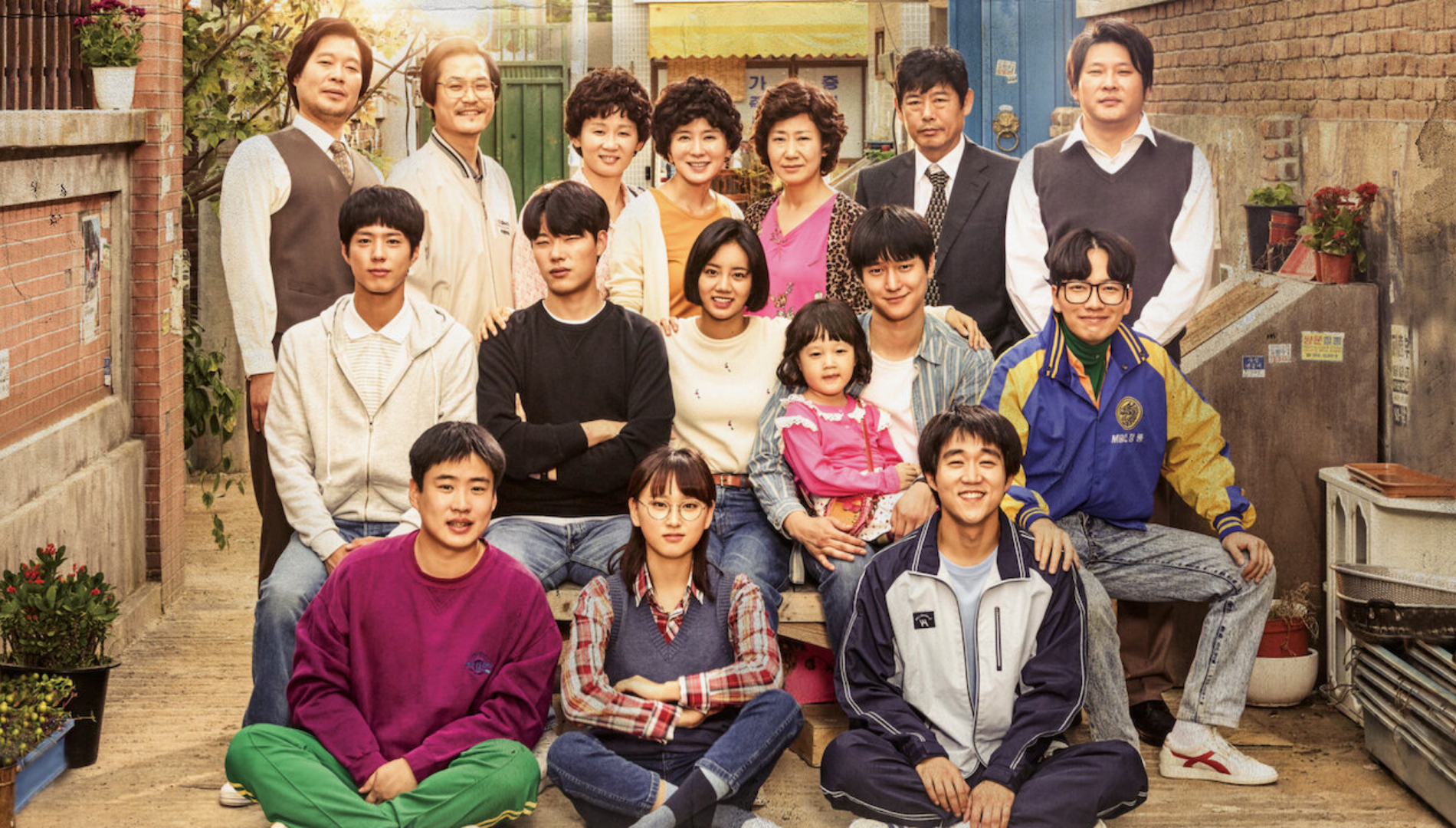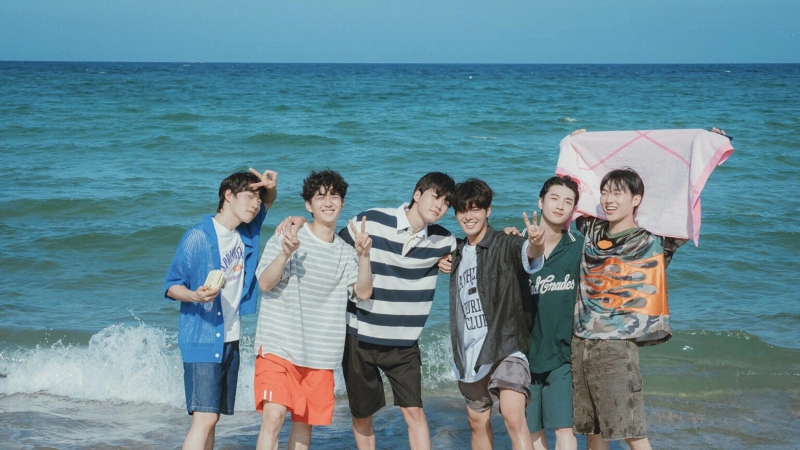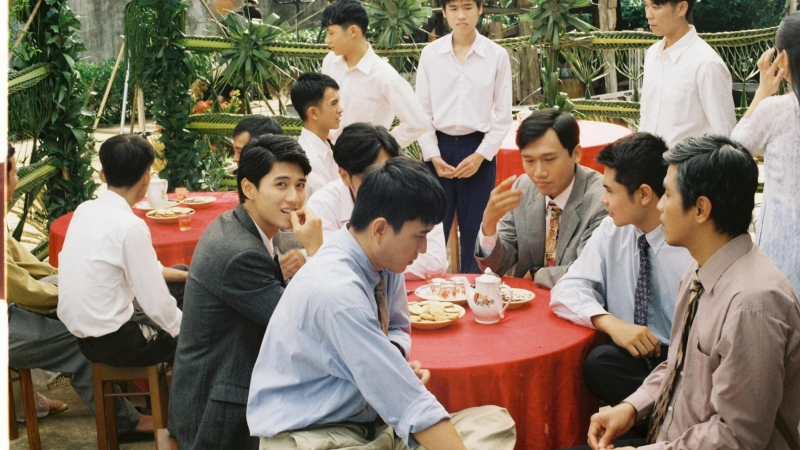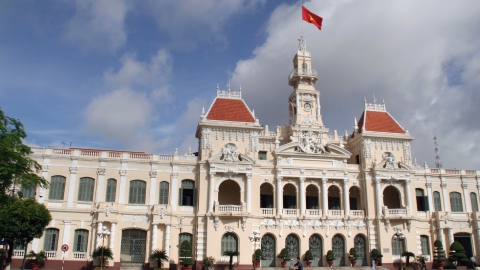Without resorting to grand gestures, "Reply 1988" is simply constructed, unpretentious, and without unnecessary drama. It's no coincidence that it's one of the most beloved Korean dramas of all time. This is because it's not just a silly, innocent romance, but also a profound and deeply humanistic drama about family and friendship.
"Time gives us the greatest gift we don't know about: the memory of having been loved."
The film tells the story of the youthful journey of poor boys and girls growing up in the small neighborhood of Ssangmun-Dong, Seoul in the 1980s, a time when South Korea was engulfed in turmoil due to numerous student protests demanding democracy. While using historical context as a backdrop, "Reply 1988" doesn't focus on the political aspects, instead portraying a life full of hardship but also brimming with human warmth. Whether grandparents, parents, or young viewers, anyone can easily recognize their own family or themselves in the film.
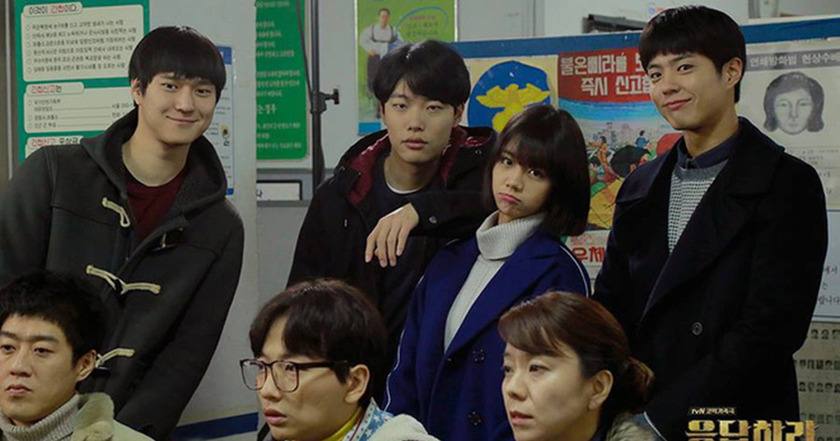
Without resorting to grand gestures, Reply 1988 gathers simple stories about everyday life in families, about youth, love, and friendship…
The small neighborhood of Ssangmun Dong in Seoul during the 1980s is portrayed to viewers not as glamorous or bustling, but as quiet and peaceful. Each family living there has its own difficulties and worries, but this does not diminish their love and immense sacrifice for their children. There's Duk Sun's (Lee Il Hwa) mother pleading in the rain for the police not to arrest her daughter Bora; Jung Hwan's (Ra Mi Ran) mother, who, knowing her son is lying, still gives him money without questioning; and Sun Woo's (Kim Sun Young) mother, who always gives her son the best despite their impoverished circumstances…
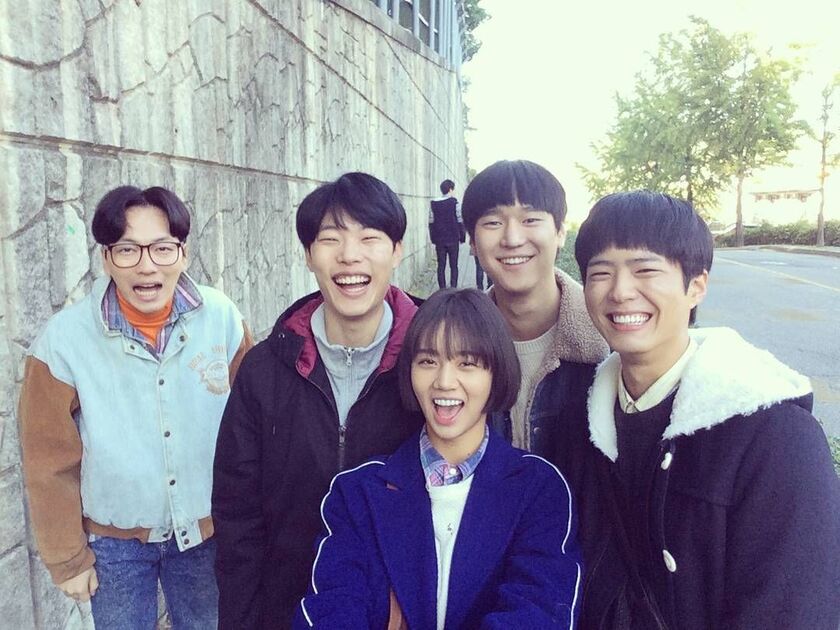
Amidst the bustling buildings of Seoul lies the tranquil and peaceful Ssangmun neighborhood. This small street has witnessed the footsteps and growth of children, each with their own unique personality.
In a time when there was no internet and no smartphones, the friendship between the five friends in the poor neighborhood blossomed naturally, beautifully, and was strengthened through simple moments together: eating noodles, watching the movie "A Better Tomorrow," going to school together... Being present at every major event of their youth was the strongest "glue." Like the Go prodigy Choi Taek, who was still considered naive by the group, but always received the most attention because of the lack of a mother's love. Or, despite not being well-off, they pooled their money to buy Duk Sun the music player she always dreamed of... All these small, selfless actions nurtured their enduring friendship, helping the group navigate many ups and downs in life.
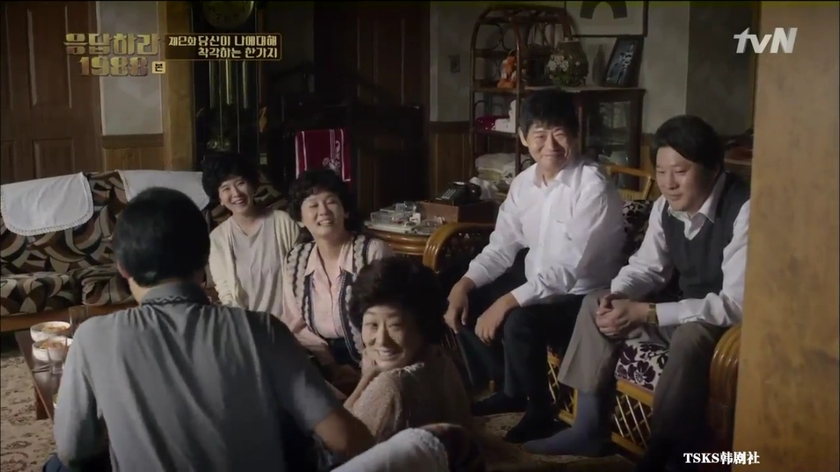
It's difficult to explain why Reply 1988 has captured the hearts of so many viewers, perhaps because the drama has touched the peak of emotions, the youthful memories of many people and generations.
Beyond other themes of love and compassion, "Reply 1988" also portrays the bonds of community. Despite their poverty, they always share the joys and sorrows of life. Whether their meals are meager or plentiful, they share everything from fish to vegetables. In times of hardship, they never forget to offer each other encouragement and support, even in the smallest things: when Duk Sun's mother was suspected of having cancer, the entire poor neighborhood worried as if it were their own family's problem, and they all breathed a sigh of relief when they heard she was healthy. Similarly, when Jung Hwan's father fell and broke his back, a few phone calls were enough for everyone in the neighborhood to rush to care for and help him…
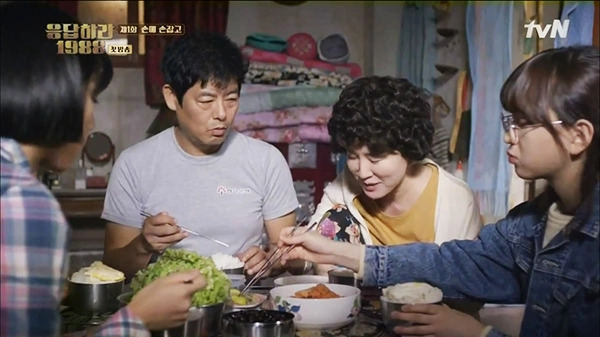
Reply 1988 takes viewers through a range of emotions, from joy and happiness to sadness and regret for the past.
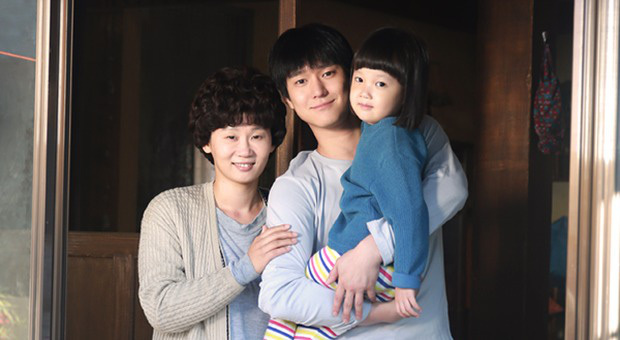
The themes of family love and pure friendship, intertwined with the first stirrings of romance, resonated deeply with the audience.
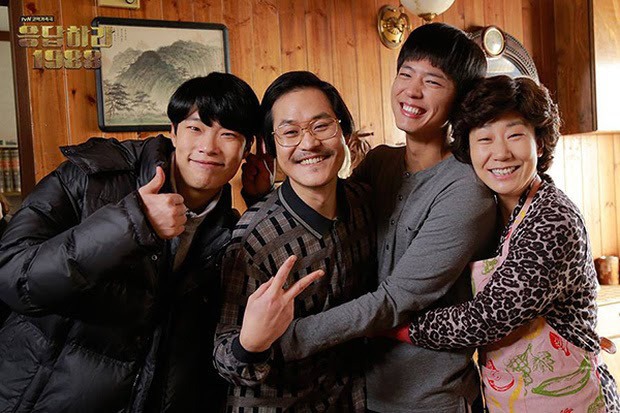
The film "Reply 1988" conveyed a profoundly meaningful message: "Everyone must grow up eventually, and everyone will find their own answers. Don't live your life only to look back on your childhood with nostalgia and regret as it passed by too quickly."
"Destiny will find you when a dramatic moment arises quite unexpectedly."
The drama sparks curiosity with its opening question, reminiscent of the familiar "Reply" series: "Who among Duk Sun's four childhood friends is her husband?" From there, the film takes viewers on a journey back in time to the past. The love in "Reply 1988" is portrayed gently, perhaps stemming from innocent and pure friendship. Duk Sun, always lively and adorable, is also sensitive like any other 17 or 18-year-old girl, her heartfelt confession evoking sympathy from the audience: "Why doesn't anyone like me?" Unbeknownst to her, she receives special attention from her two childhood friends, Jung Hwan and Choi Taek.
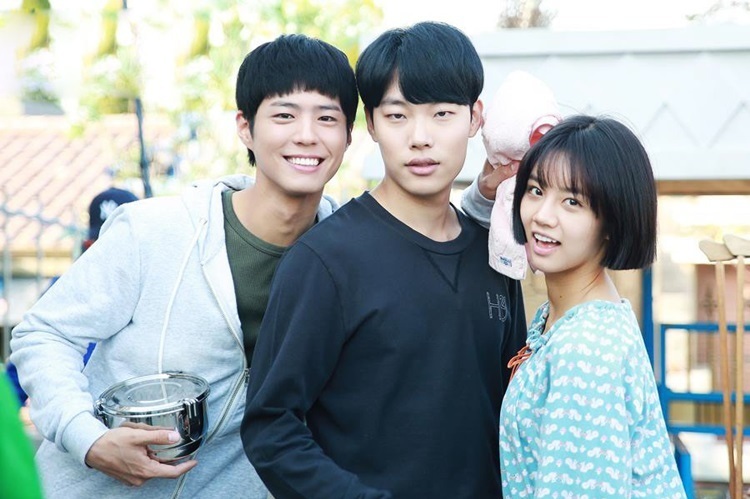
While Jung Hwan's feelings evoke intense, fleeting emotions, Choi Taek's love is gentle, like a slow, steady rain that gradually soaks the heart.
Jung Hwan, outwardly a cold and somewhat harsh-spoken boy, often teases Duk Sun, calling her foolish and ugly. However, behind that tough exterior lies a warm heart, silently caring for and protecting her. Small actions like waiting for her to go to school every day, shielding her from crowds, standing in the freezing cold to wait for her to finish school, or simply a warm glance, speak volumes about the feelings he has for her.
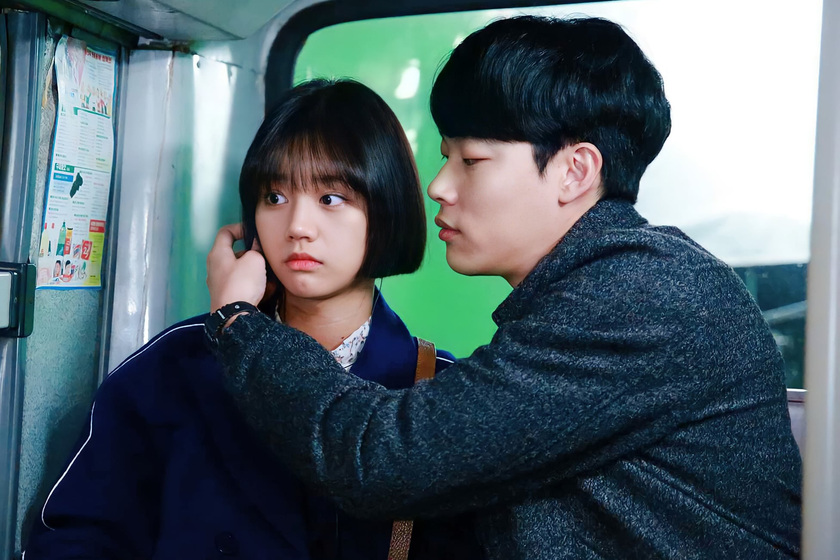
Secret love
Unlike Jung Hwan, who always quietly stayed by Duk Sun's side, Choi Taek was like a summer breeze—unexpected yet intensely passionate. He expressed his feelings like his Go game: low win rate but skillful at crucial moments. Once he realized his feelings, he didn't hesitate to express them sincerely and directly. His words, "I like Duk Sun, I will pursue her like a girl," along with his warm hugs, gentle hand-holding, and sincere compliments, all showed how much he cherished her. Most importantly, he was always there for her when she was sad, lonely, or felt unloved.
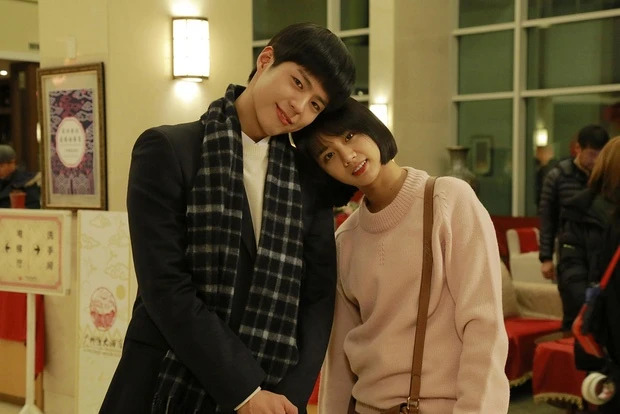
Being passionate and straightforward is equally worthy of respect.
Many viewers regretted Jung Hwan's deep feelings. In the minds of many, if only Jung Hwan had been more courageous and decisive, perhaps their puppy love could have had a different ending. But life doesn't have "what ifs," and love has no place for hesitation. Jung Hwan had many opportunities in the battle for the beautiful girl's heart, and he wasted them time and time again. Even when Choi Taek decided to step back, for six years afterward, Jung Hwan still didn't dare confess his feelings, and their relationship remained stagnant.
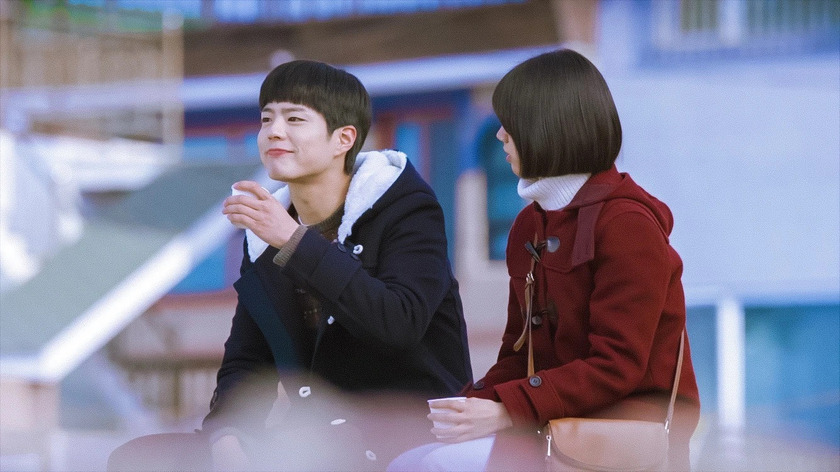
Choi Taek uses gentleness and simplicity to win over the woman he loves.
The film, with its happy ending, not only benefits the couples but also recreates the peaceful scene of Ssang Mun Dong village, the carefree moments of children playing touching the audience. Time passes, people change, and the families in this village gradually move away. However, the children's memories, their innocent first loves, and the never-ending stories of the mothers remain buried here.
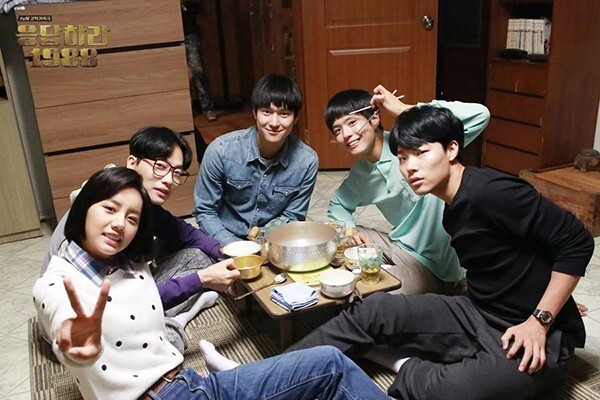
All the regrets of youth are conveyed in the film.
The small village of Ssang Mun Dong witnessed the children growing up, watching them pass through their youth—the most beautiful time of their lives. Ssang Mun Dong brought strangers together, turning them into close friends and neighbors. The community spirit among these people is truly precious. Everyone must grow up, everyone must find their own answers, and the film evokes both nostalgic memories of childhood and a sense of regret at how quickly it all passed.
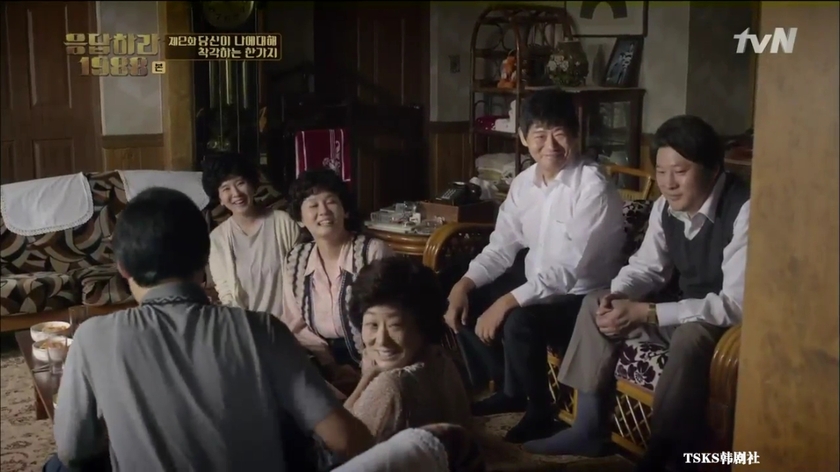
Memories of youth are captured in the film.
"Reply 1988" is not just an entertaining drama; it also brings viewers a wide range of emotions about family, friendship, love, and the simple yet heartwarming sense of community. You can easily find these values through memorable quotes and touching scenes.

 VI
VI EN
EN



